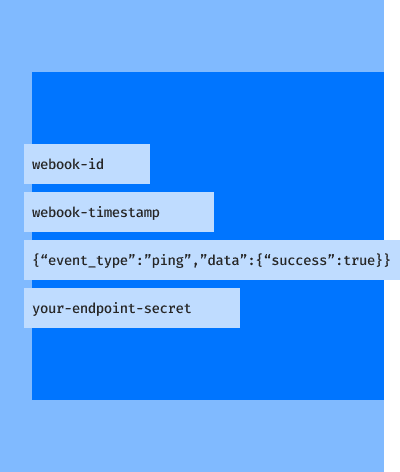Why Standard Webhooks?
Standard Webhooks is a set of open source tools and guidelines to send webhooks easily, securely and reliably. Webhooks are becoming increasingly popular, though every webhooks provider implements them differently and with varying quality. This makes it hard for providers who need to reinvent the wheel every time and repeat the same costly mistakes, and annoying for consumers who need to have a different implementation for each provider. It's also holding back the ecosystem as a whole, as these incompatibilities mean that no tools are being built to help senders send, consumers consume, and for everyone to innovate on top.
Security
Every webhook implementation needs to protect themselves and their users from SSRF, spoofing, and replay attacks.
Interoperability
Make it easier for your users to consume your webhooks by making them Standard Webhooks compliant.
Reliability
Standard webhooks is designed by experts with extensive experience building reliable and scalable webhook services.
Technical Steering Committee
The Standard Webhooks initiative, the specification, and development of tooling is driven by the community and guided by the technical steering committee.

What are Webhooks?
Webhooks are a common name for HTTP callbacks, and are how services notify each other of events. Webhooks are part of a service's API, though you can think of them as a sort of a reverse API. When a client wants to make a request to a service they make an API call, and when the service wants to notify the client of an event the service triggers a webhook (“a user has paid”, “task has finished”, etc.).
Webhooks are server-to-server, in the sense that both the customer and the service in the above description, should be operating HTTP servers, one to receive the API calls and one to receive the webhooks.It's important to note that while webhooks usually co-exist with a traditional API, this is not a requirement, and some services send webhooks without offering a traditional API.
Webhook Resources
Along with the Standard Webhooks specification, we've also built out SDKs and useful tools that make it easy to start using webhooks.
Reference Libraries
Webhook tools
Documentation
Brand Assets
Use these assets when referring to Standard Webhooks or indicating compatibility with the spec.




































